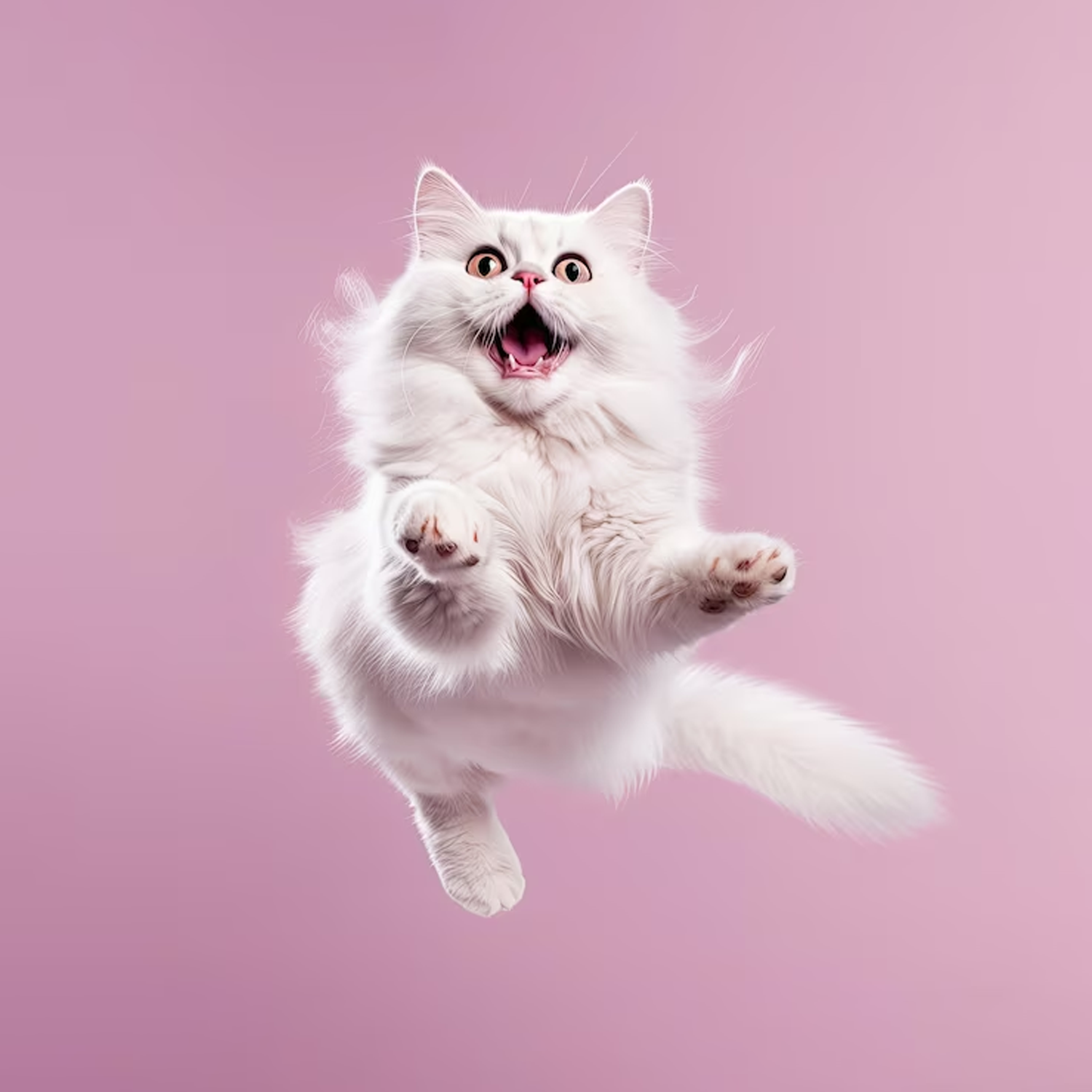Airway obstruction
The brachycephalic (flat) structure of the skull makes Persian cats particularly sensitive to respiratory distress. Since this health problem is more aggravated in hot or humid conditions, we recommend that you pay proper attention to the environmental conditions and keep your important family members away from drafts and high temperatures.
Skin Infections
The primary cause of skin infections characteristic of the Persian cat is an allergic experience. Your furry friend may be sensitive to food or environmental allergens including dust and mold, but in any circumstance, the symptoms caused by allergies will be easily noticed as they include excessive shedding and itching of the skin.
To avoid difficulties associated with skin infections, we recommend using hygiene products specially designed for cats. Additionally, it is recommended for your furry friend to avoid wheat, corn, and soy as much as possible. To identify other specific allergens, make sure to visit a nutritionist. Parasites living on the skin of the companion animal may also be the cause of the disease, so use hygiene products recommended by the veterinarian to prevent fleas, ticks, and other pests.
Polycystic
Polycystic kidney disease is a genetic disorder that causes fluid-filled cysts to form and disrupt kidney function. To prevent the spread of the disease, it is necessary to identify companion animals carrying the polycystic disease gene and to declare them unsuitable for the breeding process.
A specialized diet may be necessary to support kidney function. It is suggested to perform this process only in collaboration with an experienced nutritionist. Blood tests, routine veterinary check-ups, and competent care practices will enable you to manage the disease and adjust the treatment strategy.
Retinal Atrophy
Atrophy causes gradual degeneration of the retina and loss of vision. The cited disease is passed on to companion animals by inheritance. Regular eye exams and a diet rich in antioxidants can assist in maintaining retinal health. Before adding an important member to your family, carefully research his genetics and make sure that your beloved friend doesn’t have a genetic predisposition to vision problems.
Hip Dysplasia
Hip dysplasia causes companion animal’s hip joints to develop incorrectly and causes discomfort when moving. Although this issue is usually genetic, being overweight can make the condition significantly worse. Preventive measures include devouring a diet rich in nutrients needed for bone health, controlling portions, maintaining a healthy weight, exercising regularly, and avoiding excessive activity. Vitamins A, C, and E will prevent the inflammatory process and your companion animal’s joints will also be properly protected.
Hypertrophic Cardiomyopathy
Hypertrophic cardiomyopathy is a heart disease that causes the walls of the ventricles to thicken and disrupt the function of the cardiovascular system. Companion animals with hypertrophic cardiomyopathy have chest pain, shortness of breath, and arrhythmia. This congenital heart disease may manifest itself at different stages of development. You will be able to effectively manage the disease by actively communicating with the veterinarian.
Alpha-Mannosidosis
Alpha-mannosidosis is a rare genetic disease that affects the nervous system. The disease is caused by the deficiency of the enzyme that is necessary for the normal functioning of cells. Alpha-mannosidosis in Persian cats causes neurological symptoms such as tremors and cognitive impairment. Genetic testing, regular veterinary check-ups, attention to neurological symptoms, and prompt medical attention to symptoms are prerequisites for effective disease management.

